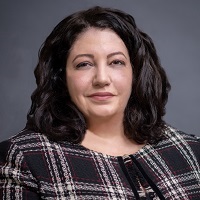How Financial Planning Tech Can Help You Maximize Every Dollar
It's Financial Planning Month, so it’s a great time to explore how innovative technology can assist you when it comes to managing your savings and debt.


Profit and prosper with the best of Kiplinger's advice on investing, taxes, retirement, personal finance and much more. Delivered daily. Enter your email in the box and click Sign Me Up.
You are now subscribed
Your newsletter sign-up was successful
Want to add more newsletters?

Delivered daily
Kiplinger Today
Profit and prosper with the best of Kiplinger's advice on investing, taxes, retirement, personal finance and much more delivered daily. Smart money moves start here.

Sent five days a week
Kiplinger A Step Ahead
Get practical help to make better financial decisions in your everyday life, from spending to savings on top deals.

Delivered daily
Kiplinger Closing Bell
Get today's biggest financial and investing headlines delivered to your inbox every day the U.S. stock market is open.

Sent twice a week
Kiplinger Adviser Intel
Financial pros across the country share best practices and fresh tactics to preserve and grow your wealth.

Delivered weekly
Kiplinger Tax Tips
Trim your federal and state tax bills with practical tax-planning and tax-cutting strategies.

Sent twice a week
Kiplinger Retirement Tips
Your twice-a-week guide to planning and enjoying a financially secure and richly rewarding retirement

Sent bimonthly.
Kiplinger Adviser Angle
Insights for advisers, wealth managers and other financial professionals.

Sent twice a week
Kiplinger Investing Weekly
Your twice-a-week roundup of promising stocks, funds, companies and industries you should consider, ones you should avoid, and why.

Sent weekly for six weeks
Kiplinger Invest for Retirement
Your step-by-step six-part series on how to invest for retirement, from devising a successful strategy to exactly which investments to choose.
October is Financial Planning Month, and this month we are reminded how important having a financial plan is — and how much value working with financial planning technology and a financial adviser can provide in helping you to achieve what is most important to you. According to a Hearts & Wallets survey from last year, 82% of consumers think about their financial goals, but only 54% of them actually have some sort of plan. And of those who do plan, only 37% have made plans in writing.
Written financial plans are important, and consumers can utilize innovative technology to maximize every dollar they earn along the journey toward reaching their goals.
For many individuals, competing priorities — like paying down debt, establishing an emergency fund and saving in their employer’s 401(k) — can feel daunting, or even impossible. Making the right decision about where to allocate each available dollar most effectively can be complex. Leveraging technology and working with a financial professional can help make that process easier.
From just $107.88 $24.99 for Kiplinger Personal Finance
Become a smarter, better informed investor. Subscribe from just $107.88 $24.99, plus get up to 4 Special Issues

Sign up for Kiplinger’s Free Newsletters
Profit and prosper with the best of expert advice on investing, taxes, retirement, personal finance and more - straight to your e-mail.
Profit and prosper with the best of expert advice - straight to your e-mail.
Once a plan is put in place, technology platforms can offer access to dashboards that provide a view of an individual’s entire financial picture and allow them to see and track progress toward not only saving for retirement or dream purchases, but also toward other financial goals, like paying down debt, saving for health care expenses and more.
When thinking about how to maximize the impact of each dollar, there are several things that should be considered and appropriately prioritized. Using the financial planning technology available in today’s marketplace, Americans can determine where to put their next dollar:
- Emergency fund. Establishing an emergency fund is something that every individual should put on their agenda. Consumers can utilize financial planning technology to create emergency funds for meeting one, three or six months of emergency expenses. Smart technology can help to aggregate and harness personal and industry data to help consumers identify how much of their income to set aside to cover emergency expenses or meet expenses when they could be out of work.
- Credit cards. Evaluating credit card debt and making decisions regarding which debt to pay down first is another area that should be evaluated. Consumers can create a personalized, and optimized, schedule to help them reduce and pay off credit card debt while reducing the overall interest being paid.
- Health savings accounts. Certain financial planning solutions enable consumers to understand how much they would need to set aside in health savings accounts (HSAs) to meet their estimated annual expenses. They can also help consumers understand the potential tax-deferred growth of their contributions over time.
- Retirement savings. Consumers can use financial planning tools to calculate how much savings they would need in order to meet the goals they have set for retirement. They can also view the potential impact that taking advantage of employer contributions or increasing personal contributions to a 401(k) could have on their savings over the long term for helping them to achieve a financially secure retirement.
- Student loans. Some financial planning technology applications can enable consumers to evaluate multiple student loans with different interest rates to find the best way to pay off their college debt and track progress toward doing so.
- Upcoming goals. Financial planning technology can create customized monthly savings strategies for helping consumers meet goals in the upcoming year or within the next decade. These include everything from saving for a vacation to the Caribbean or Europe, to buying a home or paying for a child’s college tuition. By working with modern financial planning technology and/or advisers who rely on it, consumers can see how they can best allocate their paychecks, and other income, to obtain the savings to meet these goals and see the impact of potential budgeting changes.
Harnessing the right technology can not only help individuals address each of these financial questions, but also help to evaluate decisions across competing priorities and maximize the impact of each dollar. Even a slight change in how income is allocated can have a big impact on how quickly debt is paid down or wealth grows.
A financial plan is so much more than just setting financial goals — it also involves making the most of the money Americans have to meet those goals.
Making use of holistic financial planning tools can make the journey toward financial goals much more productive in the short and long terms. During Financial Planning Month this year, consumers should stop to think about how to maximize the impact of every dollar.
related content
- Finding a Balance in Financial Planning: The Tale of Two Fathers
- For Financial Planning Success Now, Start by Looking at the Past
- In Financial Planning, Consider Your ‘Fuel Tank of Capability’
- Financial Planning by Life Stage Focuses on You, Not Your Age
- This Is How Logan Roy of 'Succession' Should Have Approached Estate Planning
Profit and prosper with the best of Kiplinger's advice on investing, taxes, retirement, personal finance and much more. Delivered daily. Enter your email in the box and click Sign Me Up.

Rose Palazzo is Group President of Financial Planning at Envestnet and leads us in our vision of creating financial wellness for all. Rose has extensive experience in the financial industry and in-depth knowledge of MoneyGuide as she came to us from the role of Head of Financial Planning for Morgan Stanley Wealth Management. Rose joined Morgan Stanley in 2008 as part of the Financial Planning organization to lead the development and launch the firm's proprietary progress to goals monitoring service. During her time as Head of Financial Planning she was responsible for managing the development, implementation and support of Morgan Stanley's financial planning offering.
-
 Nasdaq Leads a Rocky Risk-On Rally: Stock Market Today
Nasdaq Leads a Rocky Risk-On Rally: Stock Market TodayAnother worrying bout of late-session weakness couldn't take down the main equity indexes on Wednesday.
-
 Quiz: Do You Know How to Avoid the "Medigap Trap?"
Quiz: Do You Know How to Avoid the "Medigap Trap?"Quiz Test your basic knowledge of the "Medigap Trap" in our quick quiz.
-
 5 Top Tax-Efficient Mutual Funds for Smarter Investing
5 Top Tax-Efficient Mutual Funds for Smarter InvestingMutual funds are many things, but "tax-friendly" usually isn't one of them. These are the exceptions.
-
 Social Security Break-Even Math Is Helpful, But Don't Let It Dictate When You'll File
Social Security Break-Even Math Is Helpful, But Don't Let It Dictate When You'll FileYour Social Security break-even age tells you how long you'd need to live for delaying to pay off, but shouldn't be the sole basis for deciding when to claim.
-
 I'm an Opportunity Zone Pro: This Is How to Deliver Roth-Like Tax-Free Growth (Without Contribution Limits)
I'm an Opportunity Zone Pro: This Is How to Deliver Roth-Like Tax-Free Growth (Without Contribution Limits)Investors who combine Roth IRAs, the gold standard of tax-free savings, with qualified opportunity funds could enjoy decades of tax-free growth.
-
 One of the Most Powerful Wealth-Building Moves a Woman Can Make: A Midcareer Pivot
One of the Most Powerful Wealth-Building Moves a Woman Can Make: A Midcareer PivotIf it feels like you can't sustain what you're doing for the next 20 years, it's time for an honest look at what's draining you and what energizes you.
-
 I'm a Wealth Adviser Obsessed With Mahjong: Here Are 8 Ways It Can Teach Us How to Manage Our Money
I'm a Wealth Adviser Obsessed With Mahjong: Here Are 8 Ways It Can Teach Us How to Manage Our MoneyThis increasingly popular Chinese game can teach us not only how to help manage our money but also how important it is to connect with other people.
-
 Looking for a Financial Book That Won't Put Your Young Adult to Sleep? This One Makes 'Cents'
Looking for a Financial Book That Won't Put Your Young Adult to Sleep? This One Makes 'Cents'"Wealth Your Way" by Cosmo DeStefano offers a highly accessible guide for young adults and their parents on building wealth through simple, consistent habits.
-
 Global Uncertainty Has Investors Running Scared: This Is How Advisers Can Reassure Them
Global Uncertainty Has Investors Running Scared: This Is How Advisers Can Reassure ThemHow can advisers reassure clients nervous about their plans in an increasingly complex and rapidly changing world? This conversational framework provides the key.
-
 I'm a Real Estate Investing Pro: This Is How to Use 1031 Exchanges to Scale Up Your Real Estate Empire
I'm a Real Estate Investing Pro: This Is How to Use 1031 Exchanges to Scale Up Your Real Estate EmpireSmall rental properties can be excellent investments, but you can use 1031 exchanges to transition to commercial real estate for bigger wealth-building.
-
 Should You Jump on the Roth Conversion Bandwagon? A Financial Adviser Weighs In
Should You Jump on the Roth Conversion Bandwagon? A Financial Adviser Weighs InRoth conversions are all the rage, but what works well for one household can cause financial strain for another. This is what you should consider before moving ahead.